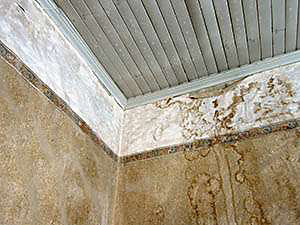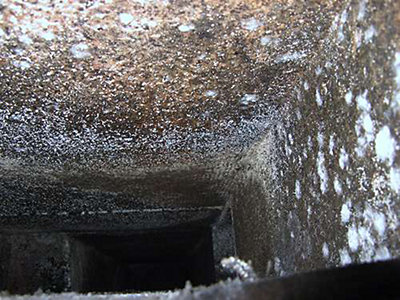Effects of Mold on Your Air Conditioner
What's growing behind your walls?
 Once mold takes hold, it’s very hard to get rid of. Take steps to control it instead.
Once mold takes hold, it’s very hard to get rid of. Take steps to control it instead.
Molds are everywhere in the natural world. We see them on trees, under leaves and dirt, or even on decaying food. They’re so widespread because the conditions they need to grow - moisture, warm temperatures and a source of organic food matter - are very common.
Many people have reactions - allergic or otherwise - to molds, with symptoms ranging from runny noses and irritated throats to headaches and dizziness. And people with compromised immune systems can be even more seriously affected.
The last thing that any homeowner wants to see is a black patch of mold in an attic, crawlspace or closet. But because of Florida’s high temperatures and high humidity, it’s easy for mold to establish itself in an unnoticed corner of your home and then slowly spread. And while it’s very difficult and costly to remove mold once you’ve got it, there are steps you can take to prevent it from occurring in the first place, or at least from spreading very far.
There’s not much we can do about the outdoor humidity in Florida, but we can keep it outside where it belongs.
A well-maintained central air conditioning system can help with that by keeping temperatures reasonable and indoor humidity levels low.

Dirty air ducts are another possible source of mold, which is why we recommend that you have yours cleaned regularly. It’s important to note that the EPA has never shown that duct cleaning conclusively prevents mold-related health problems from occurring; they recommend ducts be cleaned only as needed, and not as a routine service. However, many of our customers have told us that they find duct cleaning helps to mitigate their own allergy-type symptoms.
If you have a mold problem in your home, consult with a certified and licensed mold removal professional (in many jurisdictions, it is illegal for anyone else to attempt to remove mold). Make sure they treat the root of the problem, and not just its symptoms. That’s the best way to make sure the mold doesn’t come back.
SOURCES:
 Once mold takes hold, it’s very hard to get rid of. Take steps to control it instead.
Once mold takes hold, it’s very hard to get rid of. Take steps to control it instead.